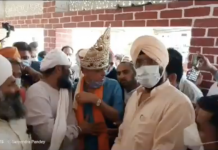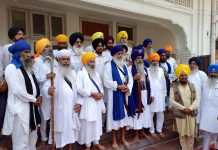


 I recently heard part of a TED talk about leaders on the radio. The questions they were trying to answer were: What is a leader? What makes a great leader? Are leaders always naturally charismatic people?
I recently heard part of a TED talk about leaders on the radio. The questions they were trying to answer were: What is a leader? What makes a great leader? Are leaders always naturally charismatic people?
The answers were surprising.
Most leaders, don’t set out to be leaders. They are people who do something that anyone else could have done—but they are the ones who actually did it. You don’t have to be charismatic to be a leader, being a leader makes you seem charismatic.
One example they provided is Bill Gates. He is a shy person and doesn’t look people in the eye. He isn’t the type of person you could put in a board room and have everyone instantly agree with him. But now, after all he has accomplished, people see him as charismatic—people listen to him.
Another example in the talk was of a man who worked for the SPCA—an organization originally founded to capture and kill stray animals. This man changed his local San Francisco SPCA to be a no-kill shelter and he was ridiculed all around the US. Then he went to North Carolina and did it again. Then to another state, and another. He became a leader because of his hard work and dedication to making a difference—no matter how small.




What makes a Sikh a leader?
What makes a single gursikh sava-lakh (the equivalent of 125,000 men)? What makes a gursikh an inspiration to others?
The single strongest quality of a gursikh can be found in their jeevan. You can look at charismatic leaders like Baba Jarnail Singh Bhindranwale, Bhai Sukhdev Singh Babbar, Baba Kartar Singh Bhindrawale and others. None of them stood up and said, “Make me a leader.”
They led humble lives of gursikhs, did their bhagti quietly, and Guru Sahib then raised them up when they were needed. The perfect example of this can be found in Baba Bakala—the story of Guru Tegh Bahadur Sahib—who didn’t stand up and say make me Guru. He wasn’t interested. He was only interested in his own love affair with God. He was only interested in being a better Gursikh.
Look at Bhai Gurbaksh Singh. His only interest was in freeing prisoners. He did what anyone else could have done—but he did it—and because of that, the entire panth now looks up to him.
How can we become leaders?
By being better gursikhs in our everyday lives. By being inspirational to those around us. By inspiring our parents, our sisters, our brothers, our spouses, and our children. By being kind and humble to all we meet. But most of all, by following gurmat.
Anyone can be a sant-sipahi, but only a few will choose to do hours of naam simran and patt every day. Only a few will choose, like Guru Amar Das Jee, to wake up early and carry buckets of water to the Gurdwara. Only a few will choose, like Bhagat Pooran Singh Jee, to find the disabled and downtrodden and carry them on their backs to shelter.
But if each of us makes an effort to be just a little more like the inspirational gursikhs we read about, we will all become like them.
This is how Khalsa Raj happens. Not with politics, guns, media, or campaigns. It starts with a decision to wake up for amritvela today, complete our nitnem, and feed a hungry soul—literally and figuratively.
Manjot Singh Khalsa has a degree in media and an extensive background in technology. He founded some of the world’s first Sikh and keertan websites and currently works in senior IT at a prestigious university. He heads up the foundation’s technology division and works to create apps and websites to serve the Sikh community. He is also involved in the foundation’s administration.



 I recently heard part of a TED talk about leaders on the radio. The questions they were trying to answer were: What is a leader? What makes a great leader? Are leaders always naturally charismatic people?
I recently heard part of a TED talk about leaders on the radio. The questions they were trying to answer were: What is a leader? What makes a great leader? Are leaders always naturally charismatic people?
The answers were surprising.
Most leaders, don’t set out to be leaders. They are people who do something that anyone else could have done—but they are the ones who actually did it. You don’t have to be charismatic to be a leader, being a leader makes you seem charismatic.
One example they provided is Bill Gates. He is a shy person and doesn’t look people in the eye. He isn’t the type of person you could put in a board room and have everyone instantly agree with him. But now, after all he has accomplished, people see him as charismatic—people listen to him.
Another example in the talk was of a man who worked for the SPCA—an organization originally founded to capture and kill stray animals. This man changed his local San Francisco SPCA to be a no-kill shelter and he was ridiculed all around the US. Then he went to North Carolina and did it again. Then to another state, and another. He became a leader because of his hard work and dedication to making a difference—no matter how small.




What makes a Sikh a leader?
What makes a single gursikh sava-lakh (the equivalent of 125,000 men)? What makes a gursikh an inspiration to others?
The single strongest quality of a gursikh can be found in their jeevan. You can look at charismatic leaders like Baba Jarnail Singh Bhindranwale, Bhai Sukhdev Singh Babbar, Baba Kartar Singh Bhindrawale and others. None of them stood up and said, “Make me a leader.”
They led humble lives of gursikhs, did their bhagti quietly, and Guru Sahib then raised them up when they were needed. The perfect example of this can be found in Baba Bakala—the story of Guru Tegh Bahadur Sahib—who didn’t stand up and say make me Guru. He wasn’t interested. He was only interested in his own love affair with God. He was only interested in being a better Gursikh.
Look at Bhai Gurbaksh Singh. His only interest was in freeing prisoners. He did what anyone else could have done—but he did it—and because of that, the entire panth now looks up to him.
How can we become leaders?
By being better gursikhs in our everyday lives. By being inspirational to those around us. By inspiring our parents, our sisters, our brothers, our spouses, and our children. By being kind and humble to all we meet. But most of all, by following gurmat.
Anyone can be a sant-sipahi, but only a few will choose to do hours of naam simran and patt every day. Only a few will choose, like Guru Amar Das Jee, to wake up early and carry buckets of water to the Gurdwara. Only a few will choose, like Bhagat Pooran Singh Jee, to find the disabled and downtrodden and carry them on their backs to shelter.
But if each of us makes an effort to be just a little more like the inspirational gursikhs we read about, we will all become like them.
This is how Khalsa Raj happens. Not with politics, guns, media, or campaigns. It starts with a decision to wake up for amritvela today, complete our nitnem, and feed a hungry soul—literally and figuratively.




